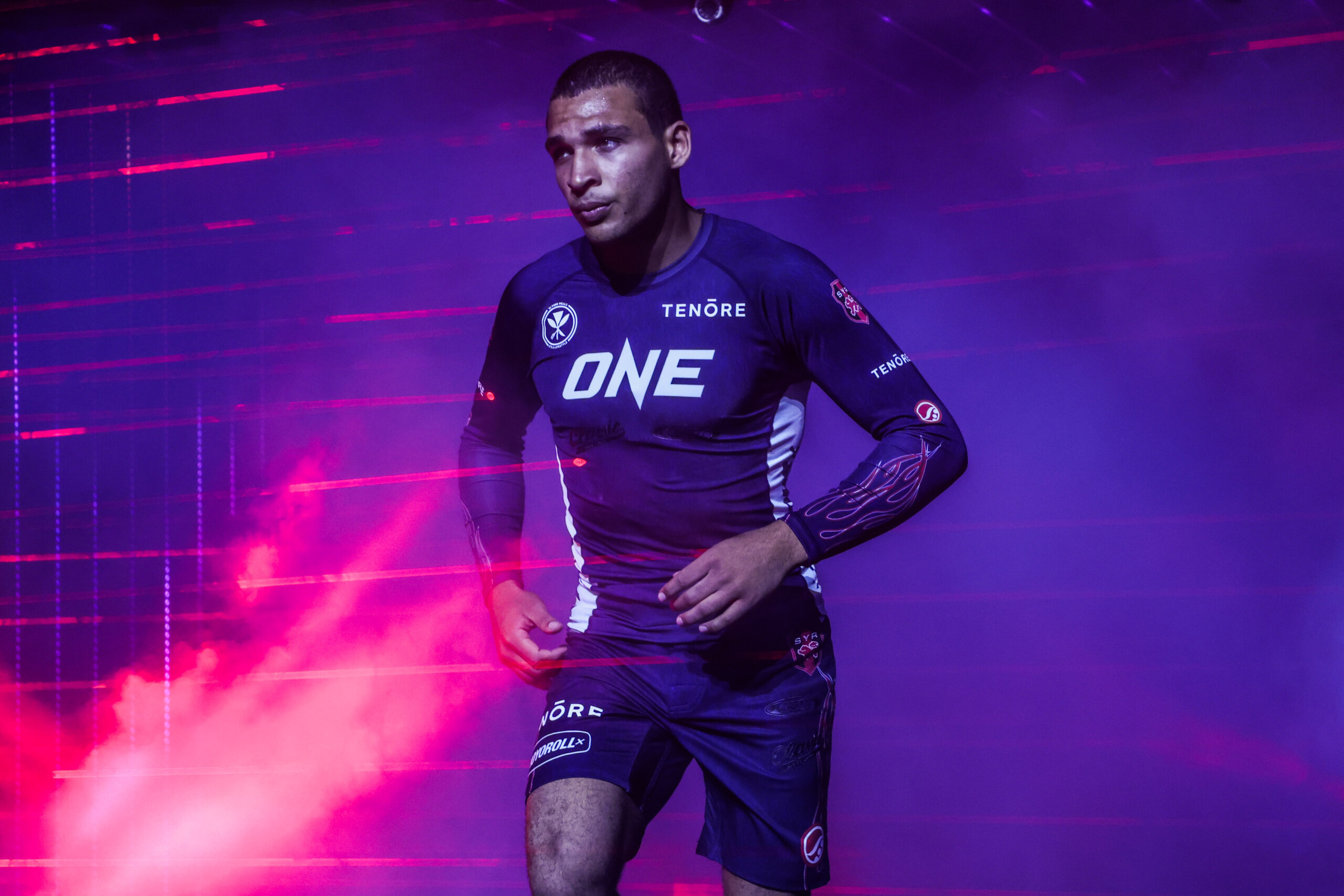How Setbacks Helped Ben Askren Become A World Champion

ONE Welterweight World Champion Ben Askren has yet to experience heartache in his professional cage career.
The 33-year-old American known as “Funky” is preparing to defend his world title against Sweden’s Zebaztian “The Bandit” Kadestam (9-3) at ONE CHAMPIONSHIP: SHANGHAI on Saturday, 2 September, and extend his immaculate record along the way.
Askren has looked nearly invincible ever since making his professional debut in February 2009, but it was a pair of heartbreaks in his first love of wrestling that ultimately led to his enduring triumph in the cage.
While attending Arrowhead High School in his native Hartland, Wisconsin, he became a standout wrestler. He was a two-time state champion, and earned a full scholarship to the University of Missouri.

However, during his 2004 and 2005 collegiate wrestling seasons, he experienced his first major setbacks.
“I wanted to win the title,” he begins. “I made the final and came up short both times. I took second place both years.”
Askren was undeterred. He resumed training with a vengeance, and bounced back authoritatively to capture the NCAA Division I Title that eluded him in 2006. He even defended his title by recapturing gold the follow year.
With his immediate goals met, Askren set his sights on accomplishing his lifelong dream — winning an Olympic gold medal. He went to Las Vegas in June 2008 to qualify for the US Olympic Trials, and defeated national runner-up Tyrone Lewis in back-to-back matches to secure a spot on Team USA.

“Funky” arrived in Beijing, China, for the 2008 Summer Olympic Games ready to fulfill his childhood dream. In a matter of hours, however, the American’s hopes were shattered.
The American split his two matches, losing to Cuba’s Ivan Fundora on points before successfully pinning Hungary’s Istvan Vereb, That loss would be enough to eliminate him from the field, and ended his childhood dream.
“The heartbreaking thing about the Olympics is you’ve got to wait four years [for another chance]. You do not get another chance next week or next month or next year. You do not have another chance. This is not like the cage, where you know you can bounce back and win a title a couple of months later,” he explains.
“The Olympics is every four years, and so losing and knowing that essentially I had put a lifetime of work into that moment, I kind of knew at that point I probably would not have another shot. But even if I did, it will be four years away. That was really hard to swallow.”
In fact, that Olympic loss has left a sour taste in his mouth to this very day.

Although it clearly frustrated Askren, he was not going to let that loss, or any other loss, break him. If anything, it would drive him. The American is a methodical competitor, and after every rare defeat he has suffered, he analyzes his mistakes, learns from them, and grows as a martial artist.
“I think every loss helps you in some way, shape, or form. Obviously, those would be my biggest losses,” he says, citing the two aforementioned heartbreaks. “The one that the Olympics taught me was that maybe I was not reaching far enough on the tactical aspect. There was one move in that match that I was not familiar with. But now that I know it, it is so stupid that I got caught in it. That was what caused me to lose that match.”
Days after that Olympic episode, he went to a pizza joint in Beijing with the woman who would become his wife, and decided to act upon his longtime interest in professional competition. “Funky” had always flirted with the idea of competing in the cage, but now he was determined to make a commitment.
Once his mind was made up, he carried over all those years of elite wrestling, and applied them to his new career path.

“I think in competing, it caused me to really study everything I can study in. Maybe every style is not going to be mine, but I need to have the knowledge of everything that could possibly happen to me inside the cage, and that is an endless amount of possibility,” he explains. “So you study this sport as closely as you can so you are well prepared, so you know everything that is coming at you.”
That ideology, and his ability to impose his will upon opponents, has guided him to a perfect 16-0, 1 No Contest record, as well as the ONE Welterweight World Championship, a title he wears with pride.
“Being a champion is more than wearing a gold belt around your waist,” he states. “It is a lot about how you live, and a lot about how you affect others around you by the way you live and train.”
Askren is the definition of a champion. He is a dedicated family man with two little girls who is forging his own path in ONE, and helping to mold a new generation of grapplers at the Askren Wrestling Academy.

He would not have it any other way. He knows firsthand how much wrestling can affect a person’s life positively.
“[With wrestling] you can see life change, and it is real. It is a powerful thing. I remember it happening to me when I was 16. I was not recruited by anybody, and I went to a national tournament and beat a kid who was highly-ranked,” recalls Askren.
“All of a sudden, I was getting calls from everyone. I really remember that moment in time, thinking, ‘I just got my college education paid for.’ I achieved the goal I wanted to achieve. I went to the University of Missouri, I met a bunch of fantastic people there, I met my wife there, and I have kids with that wife. All that, I would never have, if not for wrestling.”

















